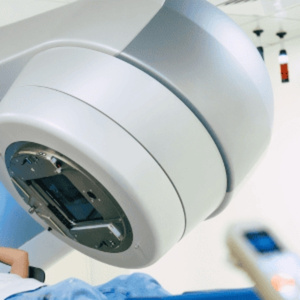
Biopsy for Cancer Diagnosis is a crucial procedure used to determine whether a suspicious growth or lump is cancerous. It involves removing a small tissue sample from the affected area and examining it under a microscope. Biopsy for Cancer Diagnosis helps doctors identify the type and stage of cancer, enabling accurate treatment planning. This safe and commonly performed test plays a vital role in early detection, giving patients a better chance at successful treatment and long-term recovery.
There are several types of biopsies used for cancer detection, including:
Needle biopsy (fine needle or core needle)
Surgical biopsy
Endoscopic biopsy
Image-guided biopsy (ultrasound, CT, or MRI)

Biopsies play a crucial role in early cancer diagnosis. Unlike imaging tests that show the location and size of a tumor, a biopsy provides definitive proof by showing abnormal cells directly. This makes it an essential step before starting any cancer treatment.
Cancer biopsy test is not just a detection method — it is the foundation of a personalized treatment plan. Once cancer is confirmed through a biopsy, your doctor can determine the best course of action, whether surgery, chemotherapy, or radiation.
A biopsy is usually recommended when:
Imaging tests show a suspicious mass or tumor
Unexplained symptoms persist (like a lump, chronic pain, or bleeding)
Cancer is suspected based on blood tests or clinical examination
Surgical expertise and compassionate patient care to ensure the best possible outcome.
Surgical Stats That Speak for Themselves
From Diagnosis to Recovery – A Clear Look at Your Treatment Journey
First evaluates symptoms, physical findings, or abnormal imaging results that may suggest cancer. If a lump, mass, or unusual tissue is detected, a biopsy is recommended for further investigation.
The doctor removes a small tissue sample from the affected area using specialized tools. This step typically takes 15–60 minutes, depending on the type and location of the biopsy.
Based on the location and nature of the suspected area, the doctor chooses the appropriate biopsy method—needle biopsy, endoscopic biopsy, surgical biopsy, or image-guided biopsy.

The collected sample is sent to a pathology lab where a pathologist examines the tissue under a microscope to detect cancer cells, assess cell type, and determine aggressiveness.
The patient is prepared for the biopsy, which may involve fasting, stopping certain medications, or undergoing imaging scans. Local anesthesia or sedation is administered for comfort.
Once results are available (usually within a few days), your doctor explains the findings. If cancer is confirmed, further tests may be done to stage the disease and create a personalized treatment plan.
Schedule your consultation today and explore safe, effective biopsy options tailored to your needs for a healthier future.
Another popular style with a title and description.
Read heartfelt experiences from our patients who trusted us with their cancer care and found hope, healing, and expert treatment.
EXCELLENTTrustindex verifies that the original source of the review is Google. We are profoundly indebted to you, Surgical Oncologist lieutenant Colonel Doctor Rahul ji for your exceptional erudition, meticulous care, and unwavering commitment during my sister-in-law’s (Ms.Promila Sharma) arduous journey with cancer. This l came to know only when l came to meet her. Your unparalleled expertise not only restored her health but also instilled within her an indomitable spirit and a renewed, optimistic outlook on life. The compassion and reassurance with which you guided her through each stage of treatment alleviated her anxieties and fortified her courage. Today, as she embraces life with vitality and hope, everyone recognizes that this transformation is a testament to your extraordinary dedication and benevolence. thank you for being more than just a doctor - for being a true a healer.Posted onTrustindex verifies that the original source of the review is Google. Dr Rahul Sandhu is truly the best oncologist in Mohali Chandigarh.His professional yet compassionate approach made a challenging journey much easier to face.dr Sandhu explain every procedure clearly and ensured that me and my wife were well informed and comfertable his expertise in cancer surgery and post operative care is unmached.the facility are Morden and hygienic I am grateful for the care I received and highly recommend dr Rahul Sandhu to anyone looking for the best cancer specialist in Mohali. If u are searching for a reliable and experienced onco surgeon in Mohali fdr rahul Sandhu is the name you can trust.Posted onTrustindex verifies that the original source of the review is Google. अपनी मैडम के साथ मुझे डॉक्टर राहुल संधू जी को मिलने का अवसर मिला उन्हें देखते ही सुकून मिलता है. . वह मुझसे क्या सभी से बहुत इज्जत से बात करते हैं उन्हें मिलने के बाद लगा डॉक्टर ऐसे ही होने चाहिए. मैंने मेरी मैडम में जो सच में चेंज देखी वह उनकी आशावादी सोच के कारण उनसे मिलने के बाद आई. Sat shri kal doctor ji aap apne aap mein ek star ho thank youPosted onTrustindex verifies that the original source of the review is Google. Thank you so much respected Doctor Sahib-came to know about your dedication towards your noble profession that has made tremendous and positive change in the life of my closest friend cum mentor Ms.Promila Sharma -your patient that you handled with much Patience and handled her sufferings and worries with your tender care Salute 🫡 to Doctor like you that replaces the fear of illness with trust in recovery God bless you always 🙏 Regards 🙏 Sangeeta & Surinder NagpalPosted onTrustindex verifies that the original source of the review is Google. Thanks message for gentle sophisticated surgical oncologist lieutenant colonel ... Dr Rahul Sandhu ,. Ji thank you for your caring nature your dedication to patients well being always putting them first . Thank you for taking the time to explain everything to your patient me during my treatment journey for being beacon of light in my times of confusion and sorrow I extend my gratitude to you your compassion have made a real difference in my life especially during recovery time ................ . Dr Rahul Sandhu ji Good doctors like you replace the fear of illness with trust in recovery it's gift from entity you are a true asset to the medical community credit goes to your parents and teacher .... . I hope everyone who is reading this is having a really good experience after meeting such a good human being . . . Dr Rahul Sandhu ji thanks a lot. . Some true feelings . ..... . From your patient 🙏P Sharma from TMCPosted onTrustindex verifies that the original source of the review is Google. Respected Dr Rahul sandhu . .. We will always remember your caring nature and for taking the time to explain complex medical concepts to one of our family member. .. .. In prolonged Treatment and under went many Therapies of My Dear sister Promil .... Doctor we find positive➕ change in her after she met you your Empthy have made a world of difference for PROMiL .Thanks🙏 to you for your Attention you have given to herPosted onTrustindex verifies that the original source of the review is Google. We had an excellent experience with Dr. Rahul Sandhu. Dr. Rahul Sandhu took the time to listen carefully to our problem, explained everything in detail, and made us feel truly cared for. Very knowledgeable, kind, and patient. We felt well taken care of and confident in their treatment plan. Appointments were punctual, and the office was clean and well-organized. I never felt rushed, and all my questions were answered thoroughly. I highly recommend Dr. Rahul Sandhu to anyone looking for a compassionate and skilled Oncologist. Thanks again Doctor.Posted onTrustindex verifies that the original source of the review is Google. I was searching for an oncologist near me and came across Dr. Rahul Sandhu in Kharar Mohali. From the very first consultation, he made me feel at ease and explained everything about the surgery in detail. His professional approach and caring attitude truly stood out. The entire treatment journey was smooth and reassuring, and I felt I was in the best hands. Highly qualified and skilled surgical oncologist in the Kharar Mohali area, I highly recommend Dr. Rahul Sandhu!

Lt Col (Dr) Rahul Sandhu is a dedicated and highly skilled Surgical Oncologist with over 15 years of experience in clinical surgery, trauma care, and military medicine….
Mob. +91-9888970519
E-mail- drsand.rahul@gmail.com
Address: NH-21, ClearMedi Healthcare, Kharar, Punjab.
WhatsApp us